Abstract
1. The blood volume of the mouse has been measured using 59Fe-labelled red cells to determine the red cell volume and 131I-labelled human serum albumin to determine the plasma volume.
2. Values for the blood volume of 95·0 ± 1·5, 96·3 ± 2·7 and 84·7 ± 1·2 ml./kg body wt. were found for CSI female, CBA female and CBA male mice respectively.
3. A marked discrepancy was observed between the venous (cardiac) haematocrit and the whole body haematocrit.
4. The blood volume of the mouse must be determined from the red cell volume and the plasma volume, measured using appropriate labels, and not from the red cell volume or the plasma volume using the venous haematocrit.
Full text
PDF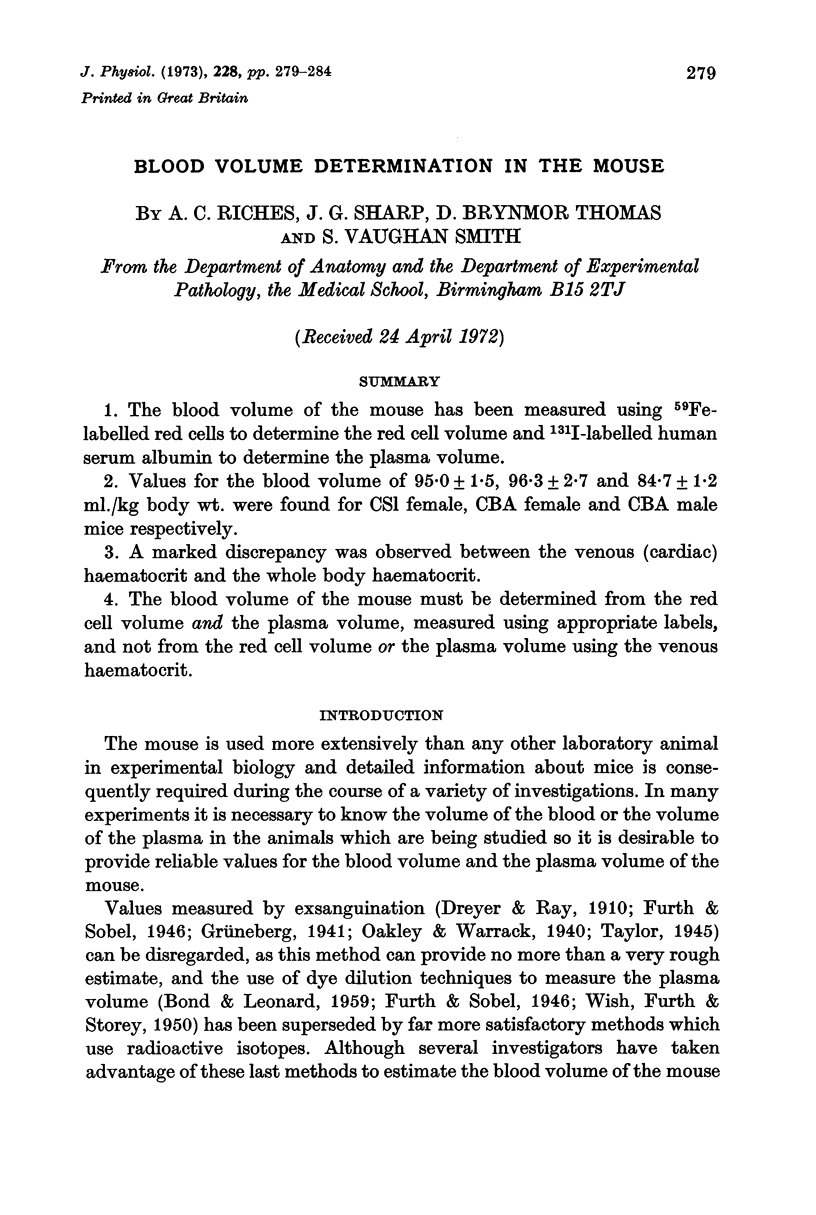
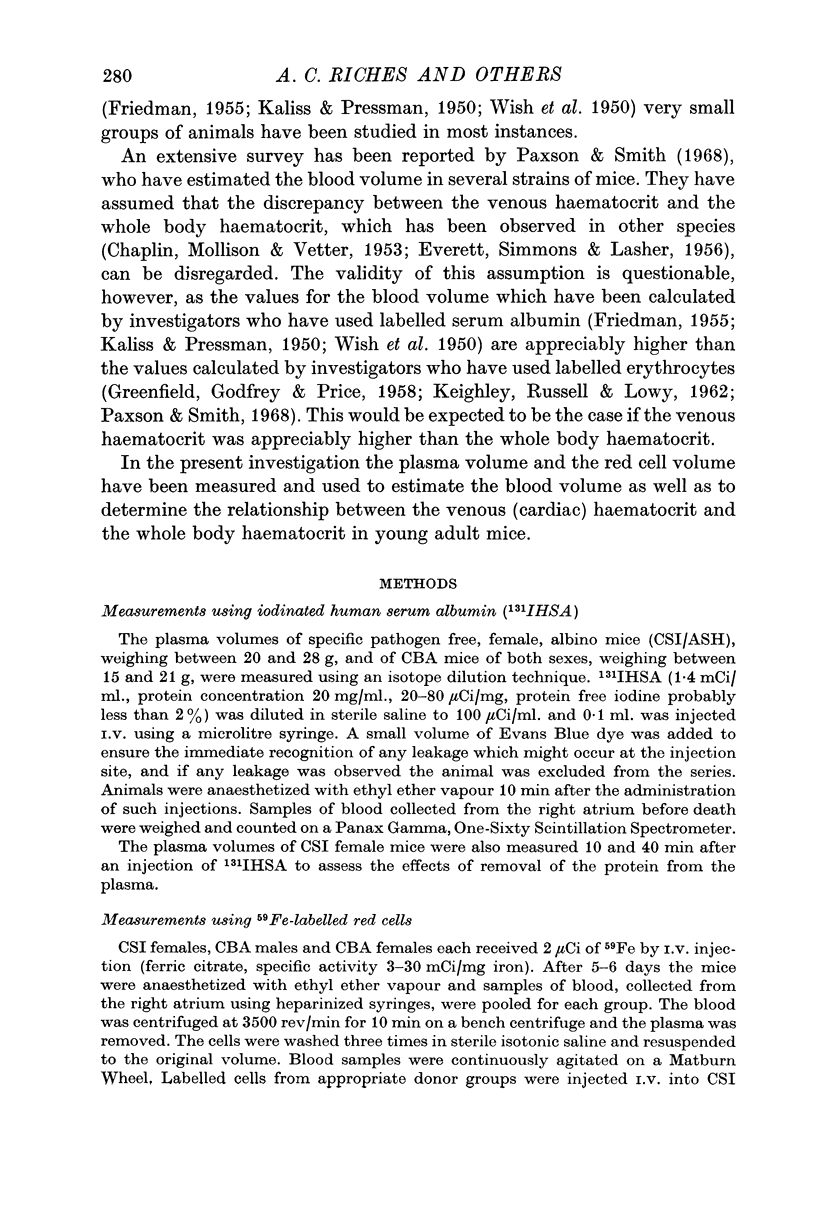
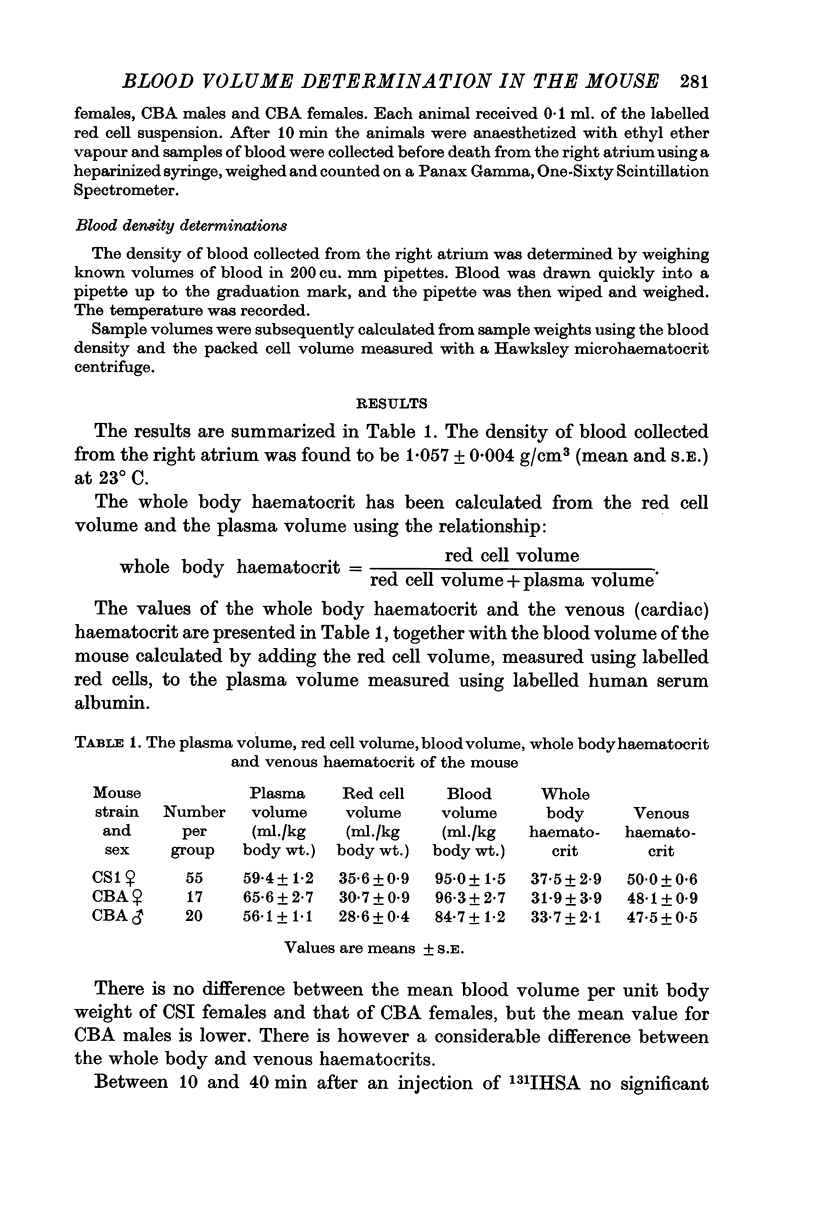
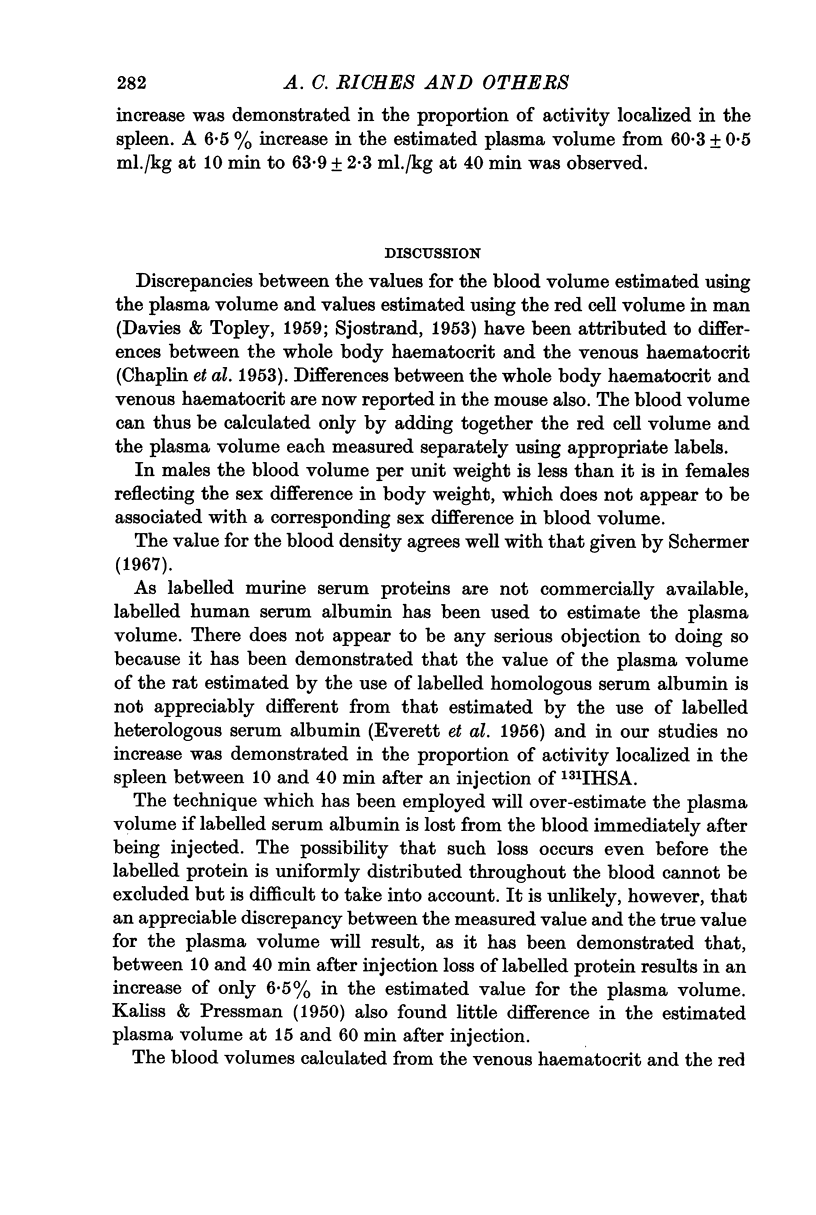
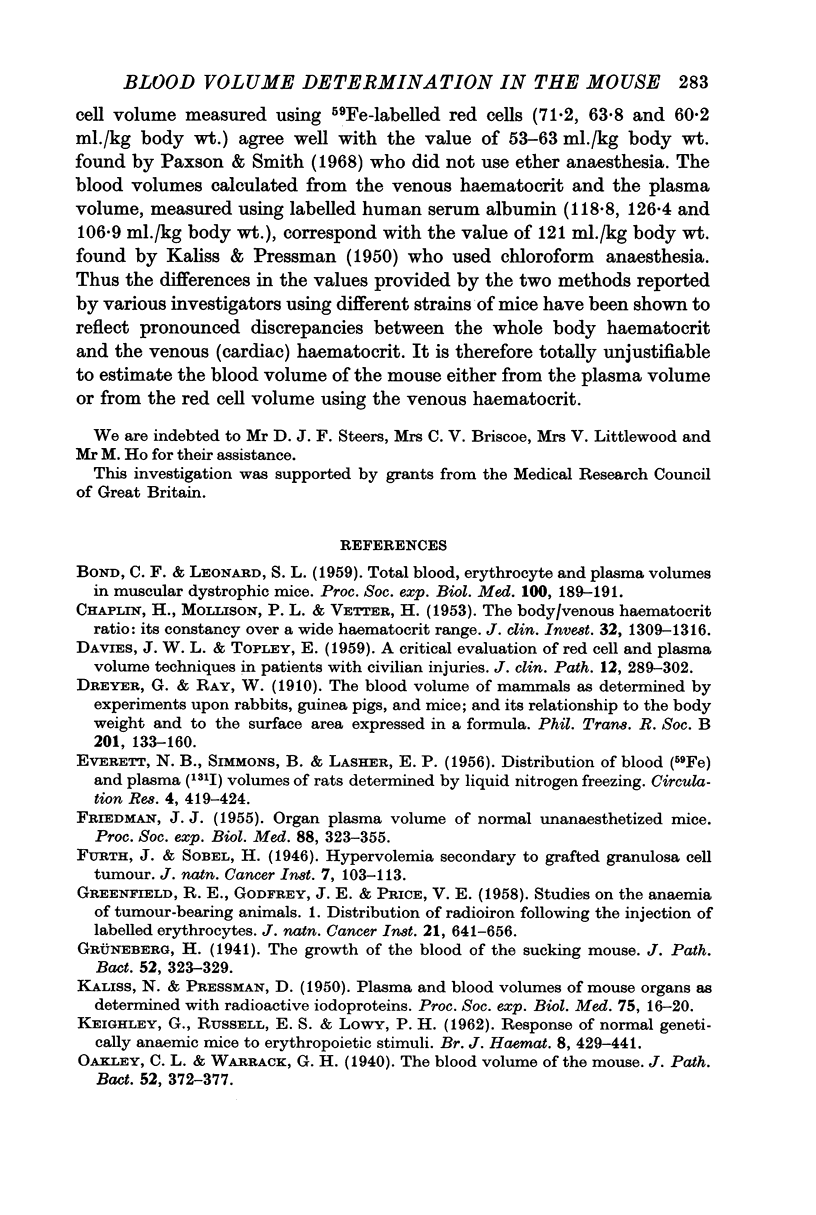
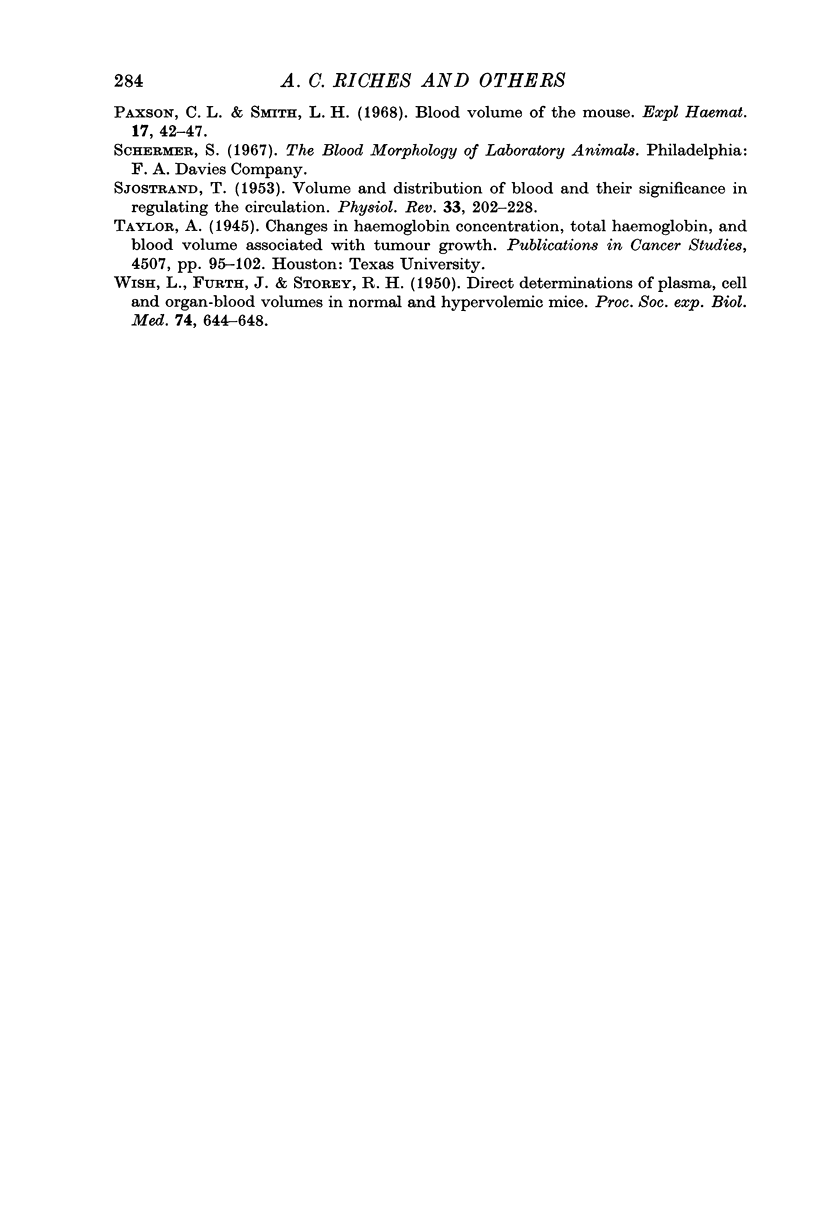
Selected References
These references are in PubMed. This may not be the complete list of references from this article.
- BOND C. F., LEONARD S. L. Total blood, erythrocyte and plasma volumes in muscular dystrophic mice. Proc Soc Exp Biol Med. 1959 Jan;100(1):189–191. doi: 10.3181/00379727-100-24567. [DOI] [PubMed] [Google Scholar]
- CHAPLIN H., Jr, MOLLISON P. L., VETTER H. The body/venous hematocrit ratio: its constancy over a wide hematocrit range. J Clin Invest. 1953 Dec;32(12):1309–1316. doi: 10.1172/JCI102859. [DOI] [PMC free article] [PubMed] [Google Scholar]
- DAVIES J. W., TOPLEY E. A critical evaluation of red cell and plasma volume techniques in patients with civilian injuries. J Clin Pathol. 1959 Jul;12:289–302. doi: 10.1136/jcp.12.4.289. [DOI] [PMC free article] [PubMed] [Google Scholar]
- EVERETT N. B., SIMMONS B., LASHER E. P. Distribution of blood (Fe 59) and plasma (I 131) volumes of rats determined by liquid nitrogen freezing. Circ Res. 1956 Jul;4(4):419–424. doi: 10.1161/01.res.4.4.419. [DOI] [PubMed] [Google Scholar]
- FRIEDMAN J. J. Organ plasma volume of normal unanesthetized mice. Proc Soc Exp Biol Med. 1955 Mar;88(3):323–325. doi: 10.3181/00379727-88-21577. [DOI] [PubMed] [Google Scholar]
- GREENFIELD R. E., GODFREY J. E., PRICE V. E. Studies on the anemia of tumor-bearing animals. I. Distribution of radioiron following the injection of labeled erythrocytes. J Natl Cancer Inst. 1958 Oct;21(4):641–656. [PubMed] [Google Scholar]
- KALISS N., PRESSMAN D. Plasma and blood volumes of mouse organs, as determined with radioactive iodoproteins. Proc Soc Exp Biol Med. 1950 Oct;75(1):16–20. doi: 10.3181/00379727-75-18083. [DOI] [PubMed] [Google Scholar]
- KEIGHLEY G., RUSSELL E. S., LOWY P. H. Response of normal and genetically anaemic mice to erythropoietic stimuli. Br J Haematol. 1962 Oct;8:429–441. doi: 10.1111/j.1365-2141.1962.tb06547.x. [DOI] [PubMed] [Google Scholar]
- SJOSTRAND T. Volume and distribution of blood and their significance in regulating the circulation. Physiol Rev. 1953 Apr;33(2):202–228. doi: 10.1152/physrev.1953.33.2.202. [DOI] [PubMed] [Google Scholar]
- WISH L., FURTH J., STOREY R. H. Direct determinations of plasma, cell, and organ-blood volumes in normal and hypervolemic mice. Proc Soc Exp Biol Med. 1950 Jul;74(3):644–648. doi: 10.3181/00379727-74-18003. [DOI] [PubMed] [Google Scholar]



